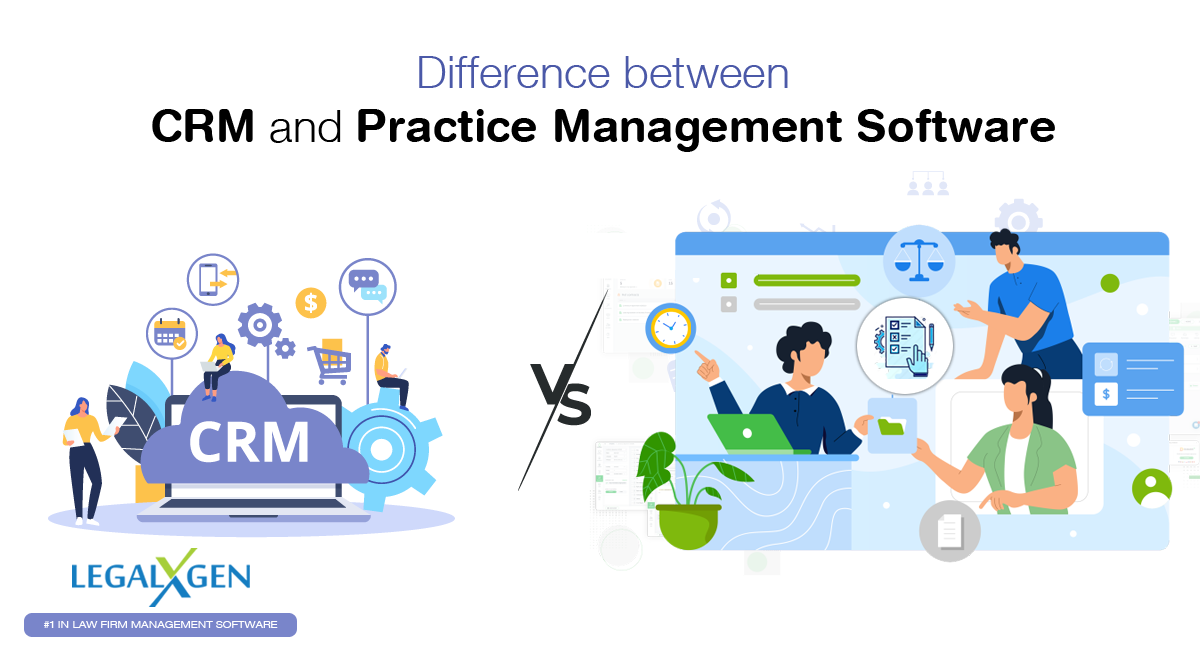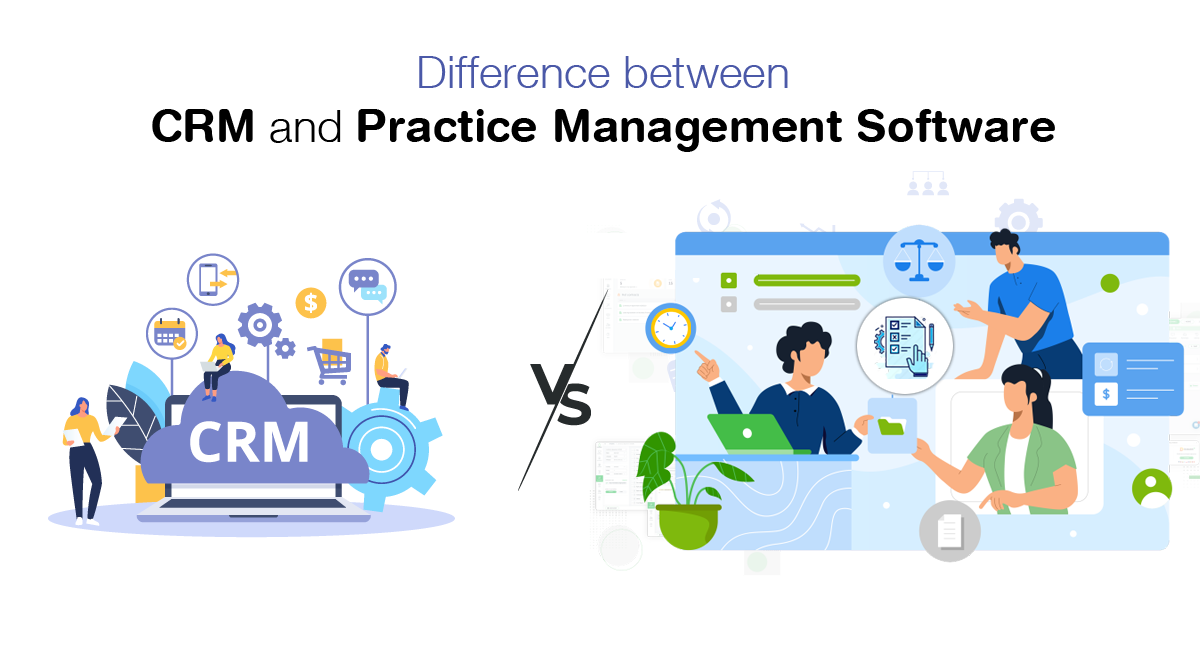

Do you deploy a CRM or Legal Practice Management system at your law firm?
The selection process is made more challenging by the fact that there are so many vendors to pick from and that it can be confusing to understand the distinctions between all the various software packages that are available to law firms. Two of the most popular software categories in law firms nowadays are CRM and Practice Management Software.
Practice Management and CRM software both aim to increase your business’s productivity and efficiency, but they operate in quite different ways and concentrate on distinct aspects of running a legal firm. While CRM software oversees recording client information, Practice Management Software is intended for administrative and office operations. We will examine more closely at these two categories of software and how they differ from one another throughout this piece.
In light of this, let’s begin with Practice Management Software.
What is “Practice Management Software”?
Legal Practice Management Software is a complete system that aids law firms in executing their firm operations and workflows.
A law firm may handle its cases, contacts, calendars, documents, tasks, time tracking, billing, payments, accounting, and more with the aid of this kind of software.
If you are having issues, such as taking too long to arrange meetings or handle client billing, Practice Management Software may be something to take into consideration.
What is “CRM”?
Customer Relationship Management, or CRM, is a system that aids in managing all relationships and interactions with both current and potential customers.
When properly deployed, a full-featured CRM system will gather leads from your website, drip-feed the prospect’s emails automatically, grade the prospect’s interactions with your company, and notify you when it’s time to engage further. You can set up complex workflows to manage all of this automatically and run various reports to stay on top of things and calculate your KPIs, ROI, and client acquisition costs.
If your goal is to improve services and eliminate the inconsistencies and time involved in maintaining client records on paper, a CRM should be adequate.
Legal Practice Management and CRMs share some similarities; however, they differ greatly in terms of their main objectives. Simply said, the major difference between the two is that CRM is built on documentation and client data storage, whereas Practice management is more focused on the business or administrative side of things.
Let us know more.
What are “the Key Differences Between CRM and Practice Management”?
| CRM | Practice Management Software |
| Data Handling | |
|
|
| Analysis & Reporting | |
|
|
| Data Monitoring | |
|
|
| Automation | |
|
|
| Purpose | |
|
|
So, by this point, you must have a comprehensive understanding that if your legal firm is still in business today and you are not using a cloud-based practice management solution, you are already behind in a bad way.
It’s ultimately up to you whether you want to streamline your business processes for better audience targeting or if you want to keep your existing customers.
The availability of numerous CRM and Practice Management Software solutions necessitates thorough research to narrow your possibilities. Both CRM and Practice management seek to increase a company’s productivity and effectiveness; they simply approach the task in different ways.
Enrol in LegalxGen’s FREE DEMO right away if you are still looking for greater support.

Market Research Analyst with a Master’s in Marketing and Analytical Experience.
 English
English French
French German
German